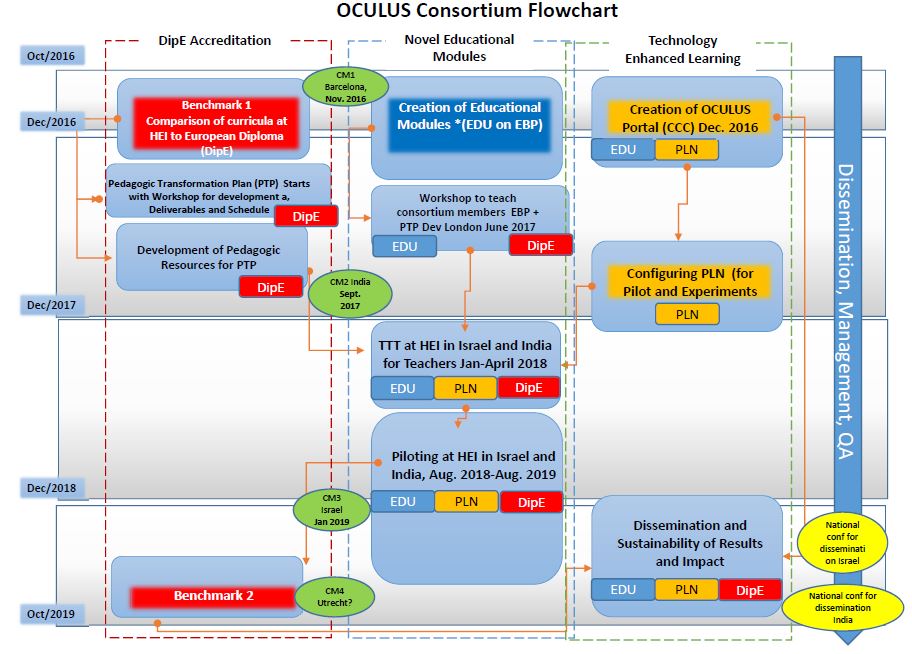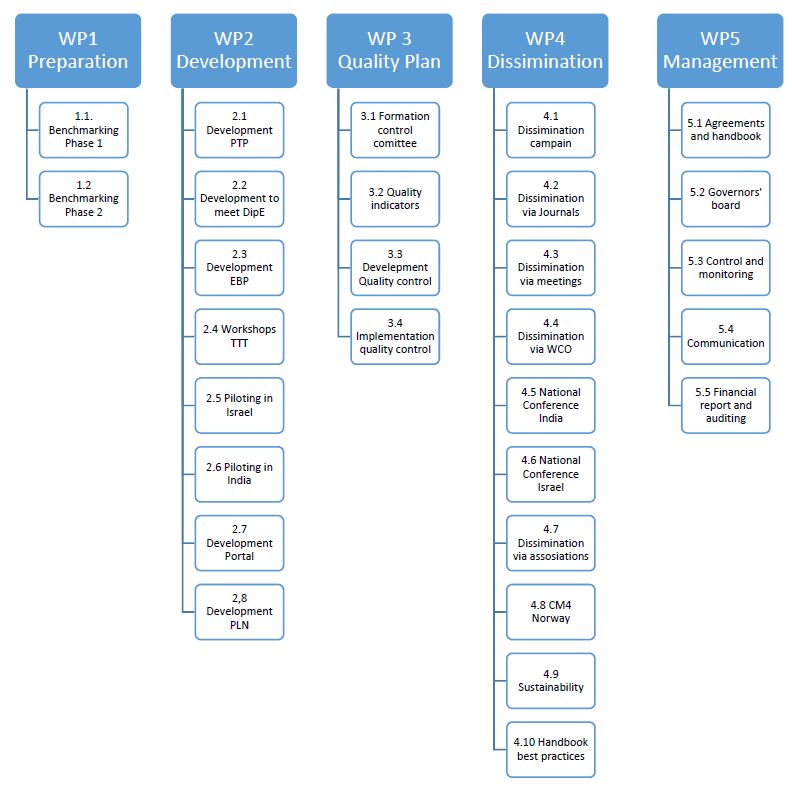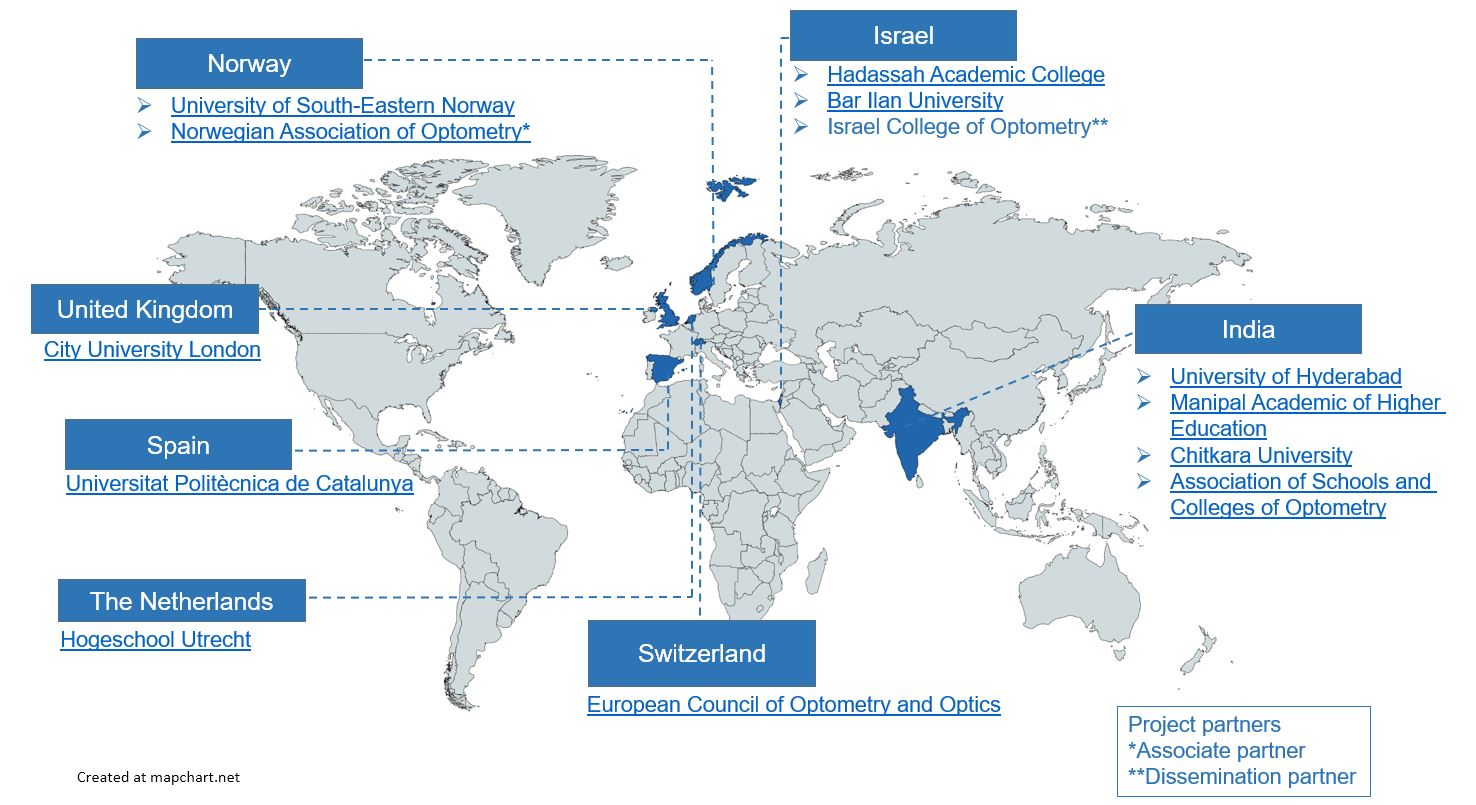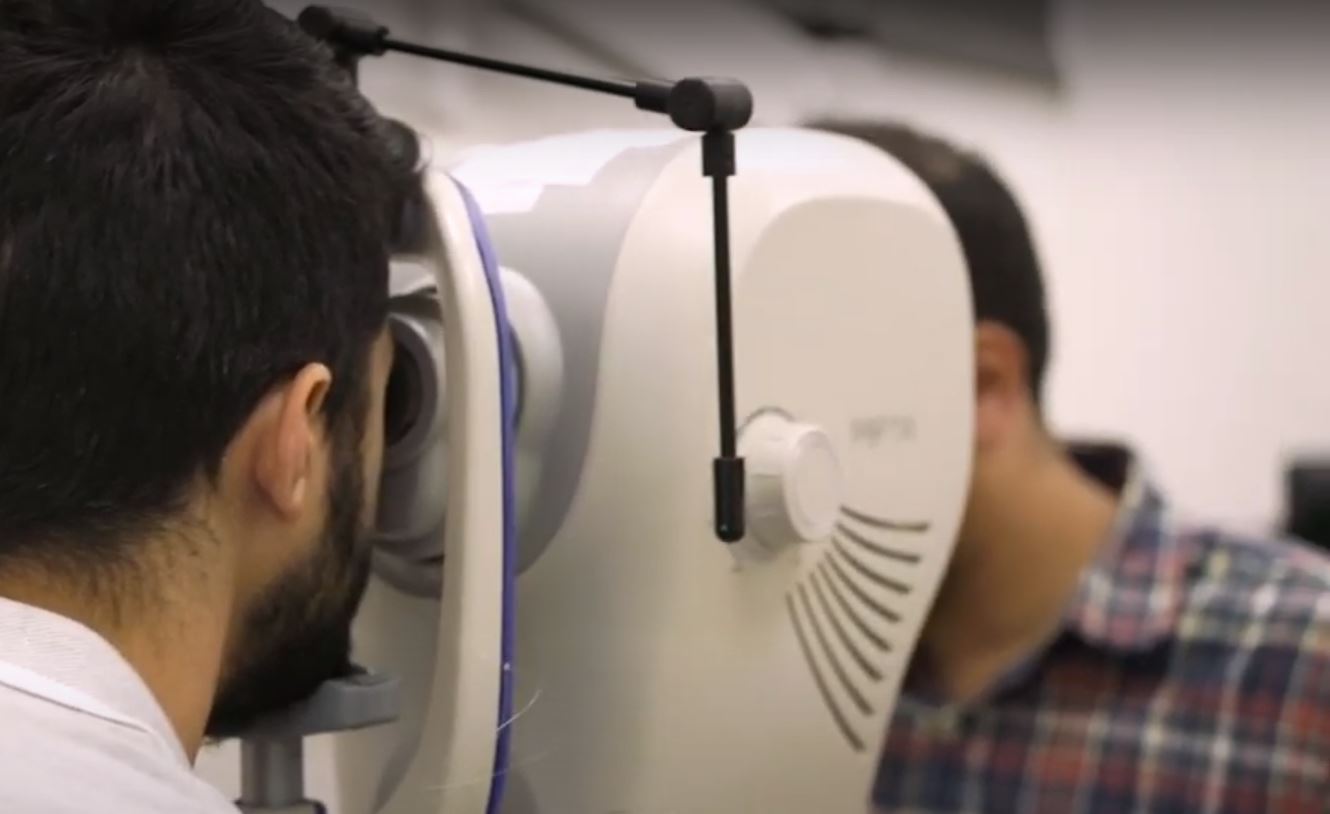OCULUS – Optometry CUrriculum for Lifelong Learning through ErasmUS
Program: ERASMUS+ KA2, Capacity Building in the field of Higher Education
Timeframe: 15.10.2016 -14-04.2020 (completed)
Coordinator: University of South-Eastern Norway
Contact details of project leader:
Name: Dr. Bente Monica Aakre
E-mail: bente.m.aakre@usn.no
Telephone: +47 3100 8936
A presentation (movie) of the project can be found here:
https://youtu.be/AExJgg3T9BY
Examples of impact of the project on optometry education in Israel and India:
https://www.youtube.com/watch?v=axvVW4vrmRU
Faculty feedback on OCULUS, Ms Preethi Naik, MAHE India
Faculty feedback on OCULUS, Ms Dhavamathi Salai, MAHE India
The project’s three pillars:
Pillar 1
DipE Benchmarking
New educational resources were developed for the curricula in Israel and India, based on the high standards of the European Diploma in Optometry (DipE)
Pillar 2
Novel Educational Module
Evidence Based Practice (EBP) was developed. EBP is a vital part of effective patient care but is still a new concept in optometric education.
Pillar 3
Technology Enhanced Learning
A patient logging network (PLN) was created for optometry students and practitioners, as an online portfolio of patient encounters and tool for peer review and discussion.
Project summary
Vision is our most important sense. It is essential for childhood development, education, employability and lifelong independence. A systematic review of vision impairment and blindness in 2010 showed that 65% of blind people and 76% of visually impaired people had a preventable or treatable disease, with a geographical bias. The majority of blindness and vision impairment can be avoided by good eye and vision care and in many regions optometrists are the primary providers of this service.
OCULUS is a consortium of educators from optometry schools in Europe (Norway, UK, Spain and the Netherlands) with the aim to reform optometry education in Israel and India towards European standards. This is expected to lead to a greater employability and job mobility for graduates, while better-trained optometrists will lead to a reduction in blindness and vision impairment.
The project was organized in three main pillars. In pillar 1, called ‘DipE Accreditation‘, new educational resources were developed for the curricula in Israel and India that are based on the high standards of the European Diploma in Optometry (DipE). Pillars 2 and 3 bring innovations to optometry education, enhancing the standard beyond DipE. In pillar 2, ‘Novel Educational Modules’, educational resources for evidence based optometric practice (EBP) were developed. EBP is a vital part of effective patient care but is still a new concept in optometric education. In pillar 3 ‘Technology Enhanced Learning’, a personal learning network (PLN) was created for optometry students and practitioners, as an online portfolio of patient encounters and platform for peer review and discussion.
OCULUS has had the support of global optometry governing and education bodies. The Israel Council of Optometry and the Association of Colleges and Schools of Optometry in India were full partners. European Academy of Optometry and Optics and the Norwegian Association of Optometry were associate partners. These organizations ensure that OCULUS outputs will continue to be disseminated globally for maximum exploitation and impact.
In short, our project has developed resources that has led to harmonization of optometry education in Israel and India with the highest standard in Europe. Furthermore, this standard was exceeded by creating educational resources for evidence based optometry and online tools for lifelong learning.
Flowchard of the project activities

Flowchart explanation: This figure illustrates the activities of the project throughout the project period and related to the three main pillars (accreditation, novel educational modules and technology enhanced learning). Abbreviations: DipE: Europen Diploma in Optometry, HEI: Higher Education Institution, EBP: Evidence Based Practice, CM: Consortium Meeting, PLN: Patient Logging Network, PTP; Pedagogical Transformation Plan, TTT: Train the teachers, QA: Quality Assurance
Organogram of the project work packages

Field monitoring events
Field monitoring of the project’s progress was done at HAC by the Israel Erasmus+ office. The project was presented and discussed. Strengts and weaknesses were analyzed and outlined by the Office.
Below the presentations of field monitorings are shown.

